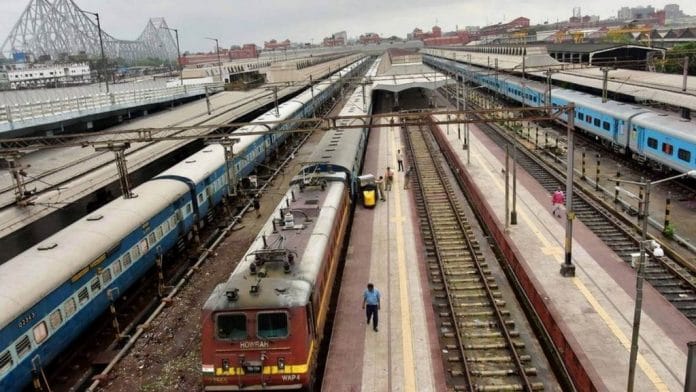Thank you dear subscribers, we are overwhelmed with your response.
Your Turn is a unique section from ThePrint featuring points of view from its subscribers. If you are a subscriber, have a point of view, please send it to us. If not, do subscribe here: https://theprint.in/subscribe/
Over the seven decades of this journey of Railways, this writer has been associated as a frequent traveller for over three decades, averaging four journeys in a month. Like everything in life, Railways has also changed in this period. But the pace of change has been very slow & in a reactive manner. The result of this was the benefits of this change were very few. Apart from this, the biggest handicap for the functioning of Railways has been the reluctance to fix accountability, which is the cornerstone for any service organization.
Prior to 2014, Railways operated largely within its limitations. As a result, nobody expected a great performance. Since the last ten years, a sustained campaign has been unleashed for the much-needed reforms in the functioning of Railways. An honest attempt was made when Mr. Suresh Prabhu was the railway minister. He was the first to announce that no new projects will be undertaken unless some finality is achieved for the pending projects. The fact that for the first time Railways started the audit of income vs expenditure for important trains during his tenure is praiseworthy. Alas, as the saying goes, good things never continue, Mr. Prabhu had to resign abruptly.
During the same period, a committee led by the Chairman of the Economic Advisory Council to Prime Minister, Mr. Bibek Debroy submitted a report on the reforms required for transforming Railways, of which dismantling of the Railway Board was the foremost. The report was selectively leaked which resulted in the unions getting agitated leading to the inevitable- the report being kept in cold storage. It is anybody’s guess who had the vested interest in leaking the report.
Further to this, a status quo was restored to the functioning of Railways, this time with a disturbing narrative of operating in a social sector instead of service sector. Once this thinking creeped in, there was a rise in inefficiency resulting in accountability getting vanished. The government now took an alternate route of reform- handing over most of the support services to IRCTC (Indian Railway Catering & Transport Corporation), a publicly listed undertaking of the government. Due to this, Railway employees & IRCTC do not see eye to eye on today’s matters.
If at all Railways must transform & achieve its true potential, there has to be a major overhaul in its operational side. This looks doubtful given the present government’s approach- doing piecemeal reforms. The result of all this has been that the government on one hand is increasing Capex & on the other it is struggling to get return on investment. In this regard, it is pertinent to note that as per the data available in public domain, Railways is spending Rs. 98.10 to earn Rs. 100 resulting in unacknowledged financial crunch manifesting in vacancies not being filled & no
major investment in maintenance & upgradation, leading to irreparable damage in service & revenue generation.
The best hope for Railways is to hand over the operational part i.e. running of trains to IRCTC & focus on infrastructure maintenance I.e. tracks, stations etc. Once this is done, the government in future can bring private players to run trains, so that passengers can get better service at competitive rates. An essential ingredient for this is a Fare Regulator who will regulate the fares. This must be done for the sake of Indian passengers who cannot be deprived of world class travel experience for the sake of inefficiency & vested interest.
These pieces are being published as they have been received – they have not been edited/fact-checked by ThePrint.


